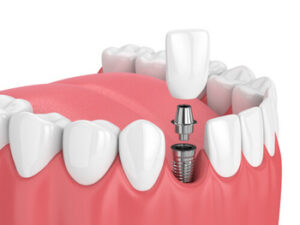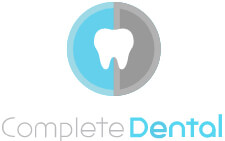When it comes to restoring smiles and replacing missing teeth, dental implant treatment is considered the perfect solution. Many people are looking into getting dental implants in Bangkok, Thailand, and are attracted by its reputation as the “Land of Smiles” and its competitive prices. However, it’s important to weigh all aspects, including quality, expertise, and long-term value. Here, we’ll explore why Australia holds a significant edge over Bangkok for dental implants, ensuring your dental treatment journey is not only cost-effective but also safe and reliable.
What Exactly Is a Dental Implant?
A dental implant is a synthetic tooth root that is surgically fixed into the jawbone to support a replacement tooth or bridge. It acts as a sturdy foundation for fixed or removable replacement teeth that are tailored to match your natural teeth. Dental implants are fabricated from biocompatible materials like titanium, which merge with the jawbone in a process called osseointegration. This integration provides stable support for one or more artificial teeth, ensuring durability and a natural appearance. Implants are used to replace a single tooth or several missing teeth or even support full-arch prosthetics like implant-supported dentures.
Why Are Dental Implants in Bangkok So Popular?

However, while the cost of dental implants in Bangkok might be enticing, it is crucial to delve deeper into what those savings might truly entail.
What’s the Real Cost of Getting Dental Implants in Bangkok?
When considering dental implants in Bangkok, many patients initially focus on treatment fees. However, the cost of dental implants should encompass more than just the price tag. The potential hidden costs associated with post-operative care, follow-up visits, or unforeseen complications can quickly add up. Additionally, implant surgery requires multiple stages, including implant post-placement, bone grafting if needed, and final crown placement, which may require more than one trip to Thailand.
Many dental clinics in Bangkok may not include comprehensive aftercare in their package, unlike in Australia, where dental services typically cover thorough follow-up appointments to track the healing process and ensure the success of the implant post. The need for multiple dental implants or more complex dental implants treatment may further complicate matters when treatment is received abroad.
The Hidden Costs of Dental Implants in Bangkok
While the initial treatment fees for dental implants in Bangkok may seem lower, patients often overlook several hidden costs that can make the overall expense much higher:
- Travel Expenses: The cost of flights, accommodations, and transportation to and from dental appointments can quickly add up, especially if multiple visits are necessary for stages like implant post-placement and final crown fitting. If complications arise or follow-up care is needed, these travel expenses can become substantial.
- Lost Income: Taking time off work to travel abroad for dental treatment can result in lost income. The need for extended stays or multiple trips due to follow-up appointments or corrective procedures can lead to significant financial strain.
- Limited Aftercare: Post-operative care is critical to the success of dental implants. While some clinics in Bangkok might offer initial care, any issues that arise once you return home may require you to find local dental services at an additional cost. This can include treating infections, adjustments, or further surgeries if the implant fails.
- Unforeseen Complications: Complications such as implant rejection, infection, or improper integration with the jaw bone can require unplanned treatments. These unexpected issues may necessitate emergency flights back to Bangkok or corrective procedures at local clinics in Australia, both of which can be expensive.
- Additional Procedures: Some patients may require supplementary treatments, such as bone grafting or sinus lifts, which might not be included in the initial quoted price. These procedures can add to the total cost significantly and might be recommended once you are already abroad, leaving little room for price negotiation.
- Higher Long-Term Costs: Lower-quality materials or less advanced techniques may result in shorter implant lifespans, necessitating replacements or repairs sooner than expected. The costs of maintaining or replacing dental implants over time can outweigh the initial savings.
- Communication Barriers: Language differences and cultural misunderstandings can lead to miscommunication regarding treatment plans or expectations, potentially resulting in extra costs for adjustments or revisions.
By the time all these hidden costs are factored in, the overall expense of getting dental implants in Bangkok can often approach or even surpass the cost of receiving comprehensive treatment in Australia.
The Benefits of Choosing Dental Implants in Australia
Choosing where to get dental implants is a significant decision, and Australia offers compelling advantages that go beyond cost. With its high standards of care, advanced technology, and dedicated follow-up support, Australia provides a dental implant experience that prioritises patient safety, comfort, and long-term success.
High-Quality Standards and Regulations
Australia has some of the strictest medical and dental regulations in the world. This means that any dental implant procedure performed must meet rigorous safety and quality standards. Dental implant treatments in Australia are overseen by qualified professionals with extensive training in implant dentistry. This includes everything from implant post-placement to bone grafting procedures and immediate load implants.
Australian dental clinics use advanced technologies and active surface implants ensuring that patients receive durable and reliable treatments. In comparison, while Bangkok offers many skilled dentists, the regulations and oversight may not be as stringent.
Access to Experienced Implant Dentists
Australia’s dental professionals often undergo comprehensive training and have access to continuous professional development. Implant dentists in Australia typically expertise in complex dental implant cases, including full jaw missing teeth and implant supported dentures. These dentists ensure that patients receive an individualised dental implant treatment tailored to their specific needs.
In contrast, while there are leading dental implant centres in Bangkok, the expertise and level of training can vary widely between clinics. This variability may impact the quality of care and the success of implant treatments.
Comprehensive Aftercare and Support
One of the most significant advantages of choosing dental implants in Australia is the comprehensive aftercare. Post-surgery care is essential for the success of dental implants and includes regular follow-ups to ensure the implant posts integrate properly with the jaw bone. Maintaining oral hygiene is crucial, and Australian clinics often provide detailed instructions and support for this, promoting long-term oral health and the success of the implant procedure.
Bangkok clinics may offer initial care, but long-term follow-up can be challenging due to the distance. Any issues, such as implant failure or infection, may require additional trips, increasing the overall treatment fees.
Cutting-Edge Technology and Techniques
Australian dental clinics leverage cutting-edge technology to improve the level of accuracy and success rates of dental implant procedures. From 3D imaging for accurate implant placement to guided implant surgery, patients benefit from state-of-the-art advancements that ensure optimal results. This technological edge helps mitigate risks and ensures that the implants function like natural teeth.
Personalised Treatment Plans
In Australia, patients can expect a thorough consultation process where treatment plans are tailored to individual needs. This personalised approach includes assessments for bone density, consideration for existing teeth, and implant post-placement techniques that best suit the patient’s oral health. This ensures that dental implant treatment provides maximum comfort and functionality.
Focus on Long-Term Oral Health
Australian dental practices prioritise not just the success of the implant procedure but the long-term health of the patient’s mouth. By integrating proper implant post-placement with measures to maintain oral hygiene, patients are educated and guided on practices that support the longevity of their implants. This contrasts with the limited follow-up options in Bangkok, where maintaining oral health post-surgery can be a challenge.
Addressing Complex Dental Implant Cases
Certain dental implant cases, such as those involving bone loss or jaw bone deficiencies, require more intricate procedures like bone grafting or the use of immediate implants. Australian dental centres are well-equipped to handle these scenarios with a high success rate due to their advanced technology and experienced teams.
Bangkok clinics do offer procedures for complex cases, but success may hinge on the clinic’s specific capabilities. Many dental clinics in Bangkok can manage straightforward implant procedures but may not be as proficient in handling complex issues involving full jaw missing teeth or posterior implants.
The Importance of Long-Term Investment in Dental Implants

Australian clinics focus on providing durable solutions, often using top-tier materials such as ceramic zirconia crowns and active surface implants. This commitment guarantees that patients receive not only immediate function implants but also implants that mimic natural tooth function and appearance for years.
Comparison of Starting Prices for a Single Dental Implant: Bangkok vs Australia
When evaluating dental treatment options, understanding the cost differences between countries is crucial. Below is a comparison of the starting price for a single dental implant in Bangkok, Thailand, and Australia.
Starting Price for a Single Dental Implant
- Bangkok, Thailand: The starting price for a single dental implant in Bangkok can start at approximately 1,800 AUD. This cost is attractive to many due to the lower overall expenses associated with dental tourism in Thailand.
- Australia: The starting price for a single dental implant in Australia typically begins at 3,000 AUD. While the cost may appear higher, it is essential to consider the comprehensive services, strict regulatory standards, and high-quality materials involved.
Factors Influencing Cost
Bangkok:
- Operational Costs: Lower overhead and operational expenses in Thailand contribute to the reduced pricing.
- Regulatory Standards: Differences in healthcare regulations and oversight can allow for more competitive pricing.
- Follow-Up Care: The initial price may not include necessary follow-up visits, potentially leading to additional expenses if complications arise.
- Material Quality: The type and quality of materials utilised can vary, impacting both the cost and durability of the implants.
Australia:
- Regulatory Compliance: Australian dental practices adhere to strict regulations, ensuring that all procedures meet high safety and quality standards.
- Advanced Technology: The use of modern equipment, such as 3D imaging and guided implant placement, contributes to the overall cost.
- Expertise and Training: Dental professionals in Australia often have extensive training and ongoing professional development, which can affect pricing.
- Comprehensive Care: The cost typically includes thorough pre-surgical assessments, post-operative follow-ups, and long-term support.
- High-Quality Materials: Clinics in Australia often use premium materials, such as titanium implants and ceramic crowns, ensuring long-lasting results.
What is Included in the Cost
Bangkok:
- Initial Consultation: The starting price often includes a basic consultation.
- Implant Placement: The cost covers the placement of the implant post.
- Temporary Crown: Sometimes, a temporary crown is included.
- Basic Procedure Fees: Standard surgical fees are typically part of the quoted price.
However, additional costs may arise for:
- Follow-Up Visits: These may not be included and can add to the total expense.
- Advanced Procedures: Bone grafting or sinus lifts may be additional.
- Final Crown Placement: The permanent crown may not be included in the initial quote.
Australia:
- Comprehensive Consultation: A detailed pre-surgical consultation, including diagnostics such as X-rays or 3D imaging.
- Implant Placement and Surgery: The surgical procedure for placing the implant post.
- High-Quality Materials: Top-grade titanium is used for the implant posts and ceramic crowns.
- Follow-Up Care: Post-surgery follow-up appointments to monitor healing and ensure integration.
- Permanent Crown: The final placement of a custom-made crown.
- Long-Term Support: Ongoing check-ups to maintain oral health and implant success.
Understanding the Dental Implant Procedure
The dental implant treatment is a multi-step process designed to create a secure and natural-looking replacement for missing teeth. Understanding the process of getting a dental implant helps you make an informed decision about where to get the surgery done. The stages of the procedure include:
Initial Consultation and Assessment
The process begins with an initial consultation where the dentist evaluates the patient’s oral health. This stage includes a comprehensive examination, dental X-rays, and possibly 3D imaging to evaluate the condition of the jawbone and surrounding structures. The dentist will determine whether the patient needs additional procedures; as bone grafting, to ensure there is sufficient bone density for the implant.
Pre-Surgical Preparation
If necessary, preparatory procedures such as tooth extraction or bone grafting may be performed. Bone grafting helps strengthen the jawbone if it has experienced bone loss, ensuring it can support the implant. After a bone graft, there is typically a healing period of several months to allow the bone to integrate and become strong enough for the implant.
Implant Placement Surgery
Once the jawbone is ready, the dental implant surgery is scheduled. During this procedure, the dentist places single or multiple dental implant posts into the jawbone. This post functions like a tooth root and provides a secure anchor for the future crown. The surgery is typically done under local anaesthesia or sedation to ensure patient comfort.
Osseointegration Period
After the implant post is placed, a period of healing called osseointegration begins. This crucial phase can take a few months as the jawbone gradually fuses with the titanium implant, creating a strong foundation for the artificial tooth. The success of this stage is essential for the long-term stability of the dental implant.
Abutment Placement
Once osseointegration is finished, an abutment is fixed to the implant post. The abutment serves to connect between the implant and the crown. This minor procedure is often done under local anaesthesia, and it allows the gums to heal around the abutment for a more natural appearance.
Crown Placement
The final step involves placing the customised crown onto the abutment. The crown is designed to mimic the shape, size, and colour of the patient’s natural teeth, ensuring a seamless and aesthetically pleasing result. This crown acts as the visible part of the tooth and restores full function for chewing, speaking, and smiling confidently.
Aftercare and Follow-Up
Post-procedure care is mandatory for the success and longevity of the dental implant. Regular follow-up visits are scheduled to monitor the implant and surrounding tissues. Maintaining good oral health habits, including brushing, flossing, and professional cleanings, is critical to prevent complications and ensure the implant lasts for many years.
Frequently Asked Questions
- How long does the dental implant procedure take?
The timeline for a dental implant procedure can vary based on the individual case, but it typically takes several months from the first consultation to the final crown placement. This includes healing time after implant placement to allow for osseointegration.
- Is the dental implant procedure painful?
Most patients report minimal discomfort during the procedure, as local anaesthesia or sedation is used. Post-surgical pain is generally manageable with prescribed painkillers and usually subsides within a few days.
- How long do dental implants last?
With proper care and maintenance, dental implants can last for many years, often over a decade or even a lifetime. Regular dental check-ups and good oral hygiene measures are key to their longevity.
- What are the potential risks or complications?
As with any surgical procedure, there are risks such as infection, implant failure, or nerve damage. Choosing a highly experienced dentist and adhering to post-operative care instructions significantly reduces these risks.
- Are dental implants suitable for everyone?
Most people are eligible candidates for dental implants, but those with certain conditions like insufficient jawbone density or chronic illnesses may need additional treatments or may not be ideal candidates. A comprehensive evaluation by a dental professional is necessary.
- What should I expect during recovery?
Initial recovery from implant surgery typically takes a few days, but complete healing and osseointegration can take a few months. During this period, it is important to follow the dentist’s advice regarding diet, oral hygiene, and activity restrictions.
Final Thoughts

Investing in dental implants in Australia means investing in peace of mind, knowing that your oral health is in the best hands. For more information about dental implant treatments or to schedule a consultation, reach out to Complete Dental and take the first step towards a healthier, more confident smile.
Elanora: (07) 5235 8199
Coorparoo: (07) 3801 6503
Note: Any surgical or invasive procedure carries risks. Before proceeding, you should seek a second opinion from an appropriately qualified health practitioner.
References:
Colgate. (n.d.). What is dental tourism? Colgate. https://www.colgate.com/en-us/oral-health/threats-to-dental-health/what-is-dental-tourism
Mayo Clinic. (n.d.). Dental implant surgery. Mayo Clinic. https://www.mayoclinic.org/tests-procedures/dental-implant-surgery/about/pac-20384622
State Library of New South Wales. (n.d.). Hot topics: Australian legal system. State Library of New South Wales. https://www.sl.nsw.gov.au/find-legal-answers/books-online/hot-topics-australian-legal-system/overview
Cleveland Clinic. (n.d.). Oral hygiene. Cleveland Clinic. https://my.clevelandclinic.org/health/treatments/16914-oral-hygiene
Doyle, C. (n.d.). Dental implant failure: 3 common medical conditions that may affect success rates. Perio-Implant Advisory. https://www.perioimplantadvisory.com/clinical-tips/article/14073307/dental-implant-failure-3-common-medical-conditions-that-may-affect-success-rates
Healthline. (n.d.). Dental bone graft: What it is, when you need it. Retrieved November 8, 2024, from https://www.healthline.com/health/dental-bone-graft









